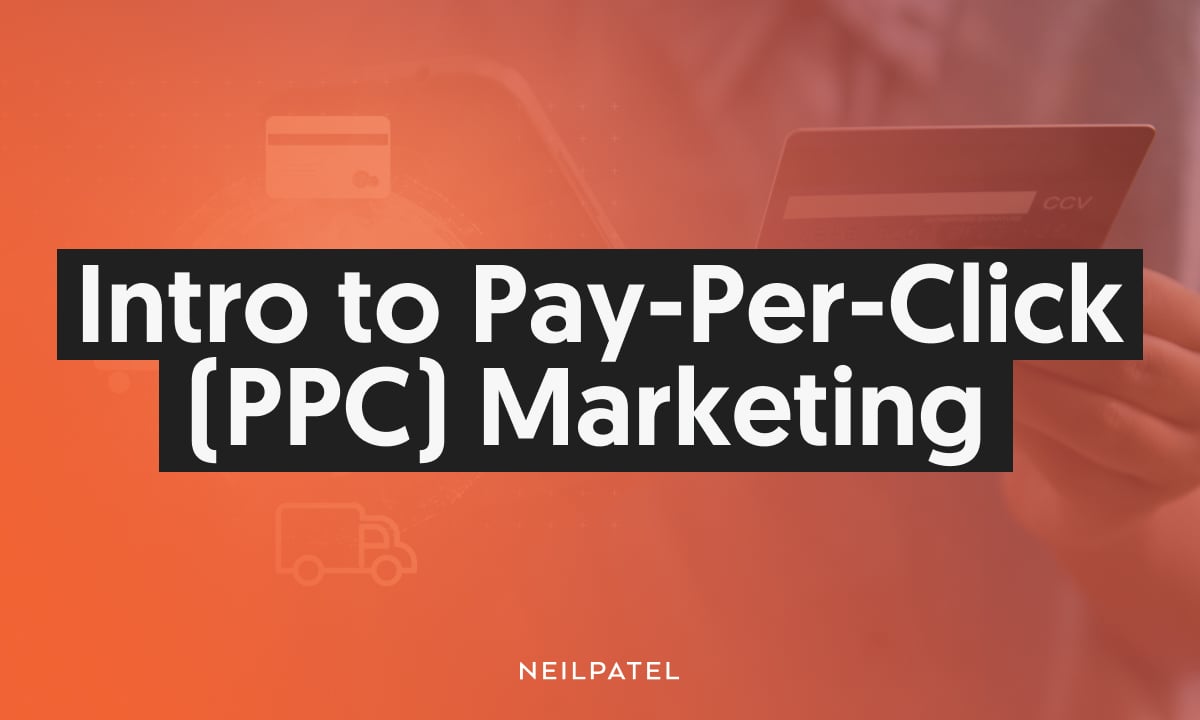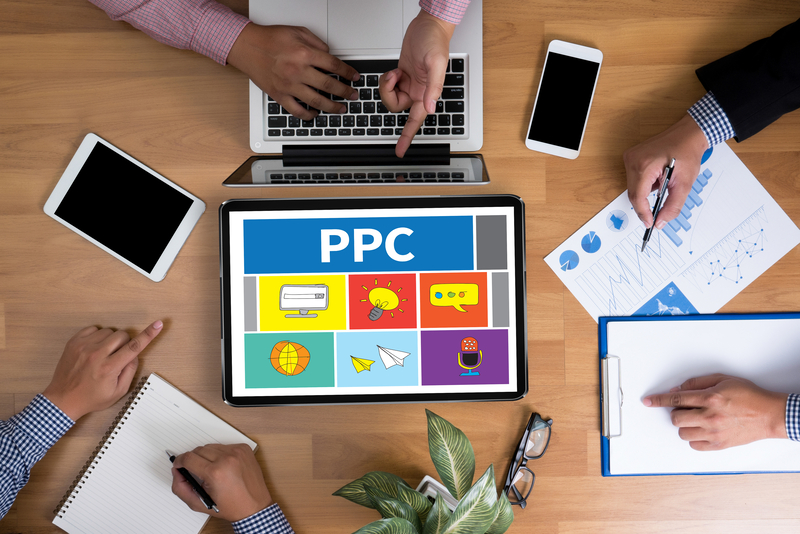Reach Your Suitable Clients Faster with Professional PPC Marketing Solutions
Reach Your Suitable Clients Faster with Professional PPC Marketing Solutions
Blog Article
How Pay Per Click Advertising And Marketing Can Drive Targeted Traffic to Your Company
PPC advertising offers a strategic avenue for organizations intending to bring in targeted website traffic, as it makes it possible for precise bidding process on keywords that resonate with potential consumers. This targeted approach not just enhances visibility among a relevant audience yet additionally has the possible to considerably improve conversion rates. With the best optimization strategies and a focus on platforms like Google Ads and Facebook, services can open deeper understandings right into customer actions. The performance of these projects hinges on a few critical components that require more expedition.
Understanding PPC Advertising
PPC (Pay-Per-Click) advertising is a digital advertising and marketing version that enables companies to get targeted web traffic by paying for clicks on their ads. This strategy enables marketers to bid on details key words appropriate to their solutions or items, making certain that their ads show up in online search engine results or on numerous online platforms. The core technicians of pay per click involve advertisers establishing a budget plan, selecting keyword phrases, and developing engaging ad duplicate to attract potential clients.

PPC marketing includes different systems, consisting of Google Ads and social networks channels like Facebook and Instagram. Each system offers special targeting choices, enabling services to customize their projects based upon habits, demographics, and interests. Comprehending these components is crucial for successfully leveraging PPC to attract and involve the preferred audience.
Advantages of Targeted Web Traffic
Driving targeted website traffic to a website offers various benefits that can significantly boost a business's overall performance. This leads to a higher return on financial investment (ROI) for advertising efforts.
In addition, targeted traffic permits organizations to construct a much more pertinent target market. By bring in people who straighten with the brand name's excellent client profile, companies can foster more powerful relationships and encourage repeat organization. This, subsequently, boosts client loyalty and enhances brand name credibility.
Furthermore, targeted traffic gives valuable insights right into consumer behavior. By analyzing the demographics and choices of visitors, organizations can improve their advertising and marketing techniques, tailor their offerings, and maximize their web content to far better fulfill the requirements of their target market.
Finally, driving targeted website traffic can boost online search engine positions. Involving and relevant content that resonates with the right target market can cause boosted dwell time and reduced bounce prices, both of which signal to online search engine that the site is valuable. Essentially, targeted website traffic lays the foundation for sustainable development and long-lasting success.
Key PPC Platforms to Think About
To efficiently harness the advantages of targeted website traffic, selecting the right pay-per-click (PAY PER CLICK) systems is important. Different platforms satisfy various audience sectors and marketing objectives, making informed choices crucial for maximizing ROI.
Google Ads is one of the most widely used PPC platform, providing this post substantial reach through search and display networks - PPC Marketing. Its robust targeting alternatives enable advertisers to concentrate on certain demographics, areas, and search phrases, making sure ads reach the best target market
Facebook Advertisements is one more effective platform, leveraging its extensive customer data for precise targeting based on habits, links, and passions. With options for both image and video ads, it's especially efficient for organizations intending to engage individuals visually.
Microsoft Marketing, previously Bing Ads, provides an option for getting to target markets that might not make use of Google. It usually boasts reduced competitors and cost-per-click rates, making it an appealing alternative for budget-conscious marketers.
LinkedIn Ads is optimal for B2B organizations, enabling targeted outreach to experts based upon work sector, title, and company size. This platform is particularly helpful for developing and producing leads brand recognition within specific industries.
Crafting Efficient PPC Ads
Developing effective PPC advertisements is important for capturing the focus of potential customers and driving conversions. The structure of a successful PPC advertisement lies in compelling duplicate that resonates with your target audience.
Following, utilize influential and succinct language in the advertisement description (PPC Marketing). Highlight key advantages and features of your services or product, guaranteeing that it deals with the demands and discomfort factors of your target market. Incorporating pertinent search phrases not only enhances ad importance however also improves the chances of appearing in search results page
In enhancement to text, visuals play an essential function. Use top quality photos or video clips that complement your message and engage audiences. Call-to-action (CTA) phrases, such as "Buy Currently" or "Discover more," need to be compelling and clear, guiding customers on what to do next.
Finally, take into consideration the landing web page experience. Ensure that it aligns with your advertisement's promise, offering site visitors with a smooth transition and Resources appropriate details. By concentrating on these aspects, you can craft pay per click advertisements that efficiently draw in and transform your target market.
Measuring PPC Success
Assessing the performance of your PPC campaigns is critical for understanding their efficiency and optimizing future efforts. To determine pay per click success, key performance signs (KPIs) have to be developed and monitored. The most considerable metrics consist of click-through price (CTR), conversion price, expense per click (CPC), and return on advertisement invest (ROAS)

Routinely analyzing these metrics offers insights right into which projects are doing well and which require changes. A/B testing can better refine your strategies by permitting you to compare various ad variants and identify one of the most reliable elements. Additionally, utilizing tracking devices and analytics platforms can improve data collection, making it possible for educated decision-making.
Eventually, a complete understanding of these efficiency metrics will empower you to maximize your PPC techniques, driving targeted web traffic and maximizing your return on investment. PPC Marketing.
Final Thought
In verdict, pay per click marketing functions as a vital strategy for companies looking for to drive targeted web traffic effectively. By leveraging certain key words, companies can reach visit here audiences truly interested in their offerings, therefore enhancing conversion rates. The continual optimization of campaigns throughout key platforms like Google Advertisements and Facebook facilitates deeper customer understandings and fosters stronger client relationships. Eventually, a well-executed PPC strategy not only maximizes return on investment but also placements companies advantageously within affordable markets.
PAY PER CLICK (Pay-Per-Click) marketing is an electronic marketing design that enables services to get targeted traffic by paying for clicks on their ads.PPC marketing encompasses various platforms, including Google Advertisements and social media networks like Facebook and Instagram. The foundation of a successful PPC advertisement exists in compelling duplicate that reverberates with your target audience. By focusing on these elements, you can craft PPC ads that successfully draw in and convert your target audience.
CTR indicates how engaging your advertisement is; a higher CTR implies your ads reverberate with the target market.
Report this page